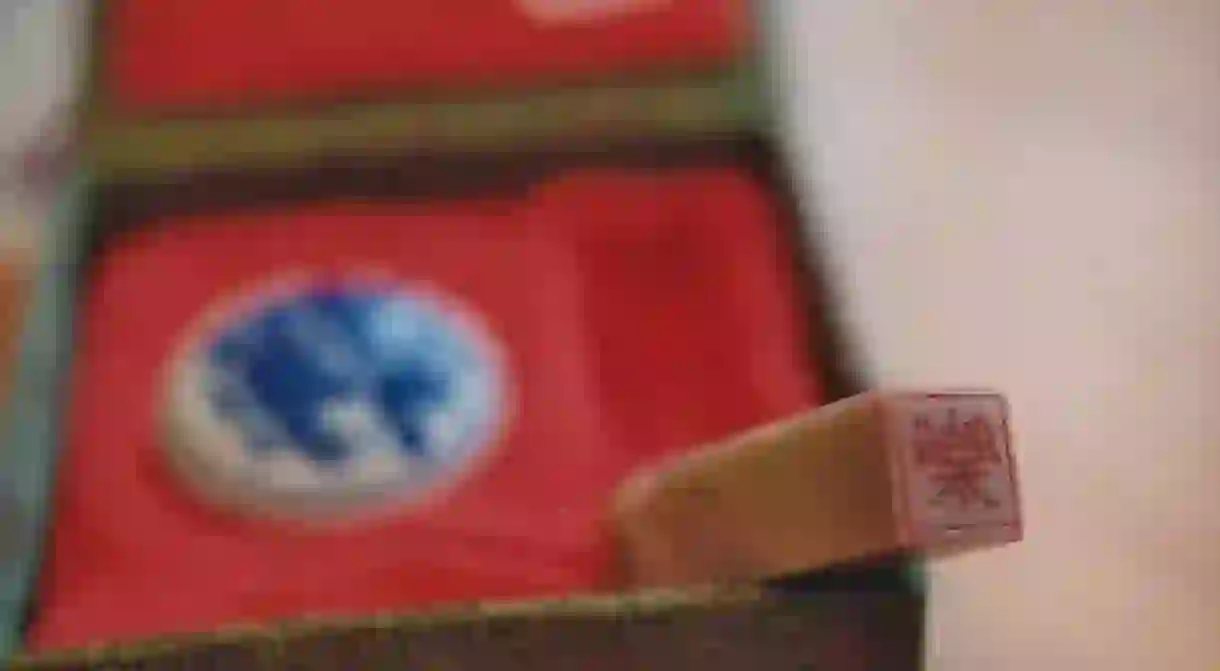Where to Buy Handmade Souvenirs in Beijing

China is home to many unique handicraft items, such as calligraphy, auspicious knots, porcelain figures, carved stamps, paper cuttings, and many with a modern twist. Buying a handmade souvenir adds a special touch that is just not there with generic magnets and postcards. Here’s where to shop for some customised memories to bring home.
Gulou Area
Market

Houhai Lake is among the many beautiful places to wonder about in central Beijing. Of the many hutong streets leading down to lake, many of them house a number of small shops, some selling fairly generic souvenirs, but others can be a place to search for handmade treasures. Moving away from the lake area, Gulou East Street has a selections of places from which to choose. Souvenirs need not be traditional – some clothes or accessories from local designers such as Spoon House will provide long-lasting and useful memorabilia to take home.
Arts District
Art Gallery, Building, Museum, Store

The 798 Arts District is home to modern and progressive artists. The old factory site has been transformed into one of the most fashionable areas in Beijing, where artist and designers alike showcase their work. Yet, it is not only for display; many items are for sale and could be the ideal souvenir to take home. The +86 Design Store has a number of household designs and other memorabilia to take home. They may not be the most China-representative, but nonetheless are unique presents with a modern twist.
How to get there: 798 Art District, take the subway line 14 to Wangjing South station and take the 403 bus to Dashanzi Lukou East station.
Qianmen
Market

The Qianmen pedestrian street has historically been a cluster of local businesses. It retains this feeling still today, and the shops open here now aim to preserve the essence of imperial China. Therefore, shopping for souvenirs here can be a pleasant experience if looking for authenticity and diversity. Among the most notable shops is Neilansheng, a cobbler who has been making shoes the same way they were made two centuries back during the Qing Dynasty. The street is also filled with a number of jewelry shops offering an array of bracelets, netsuke, and rosaries made from jade, amber and other stones that hold auspicious powers.
Nanluoguxiang
Market

Nanlguoguxiang is touristy. There’s no denying it, but sometimes suffering a tourist crowd is required to get a selection of souvenirs that are worth taking some. Nanluoguxiang is perhaps one of Beijing’s most illegitimate hutongs, as it has been restored and tailored to the comfort of the many visitors it welcomes. Still, this street has accumulated shops and stalls to find a gift or two to take home.
Wudaoying
Market
Wudaoying hutong is one of the most popular alleyways adjacent to the Lama Temple. It is home to a number of hip bars and eateries, but also some courtyards have been rebuilt to serve as shops, selling all sorts of handicrafts. The objects on offer range from small trinkets and knick-knacks to tasteful additions to a modern household, such as the ones from the trendy Plastered 8. For a more local flavour, a number of shops are devoted to the production and selling of Buddhist art. During the daytime, a passerby can observe the artists hard at work and come inside for a chat with them. The artworks, or tangka as they are called in Tibetan, are painted on silk or cotton and represent various deities that protect households and bring good fortune.













